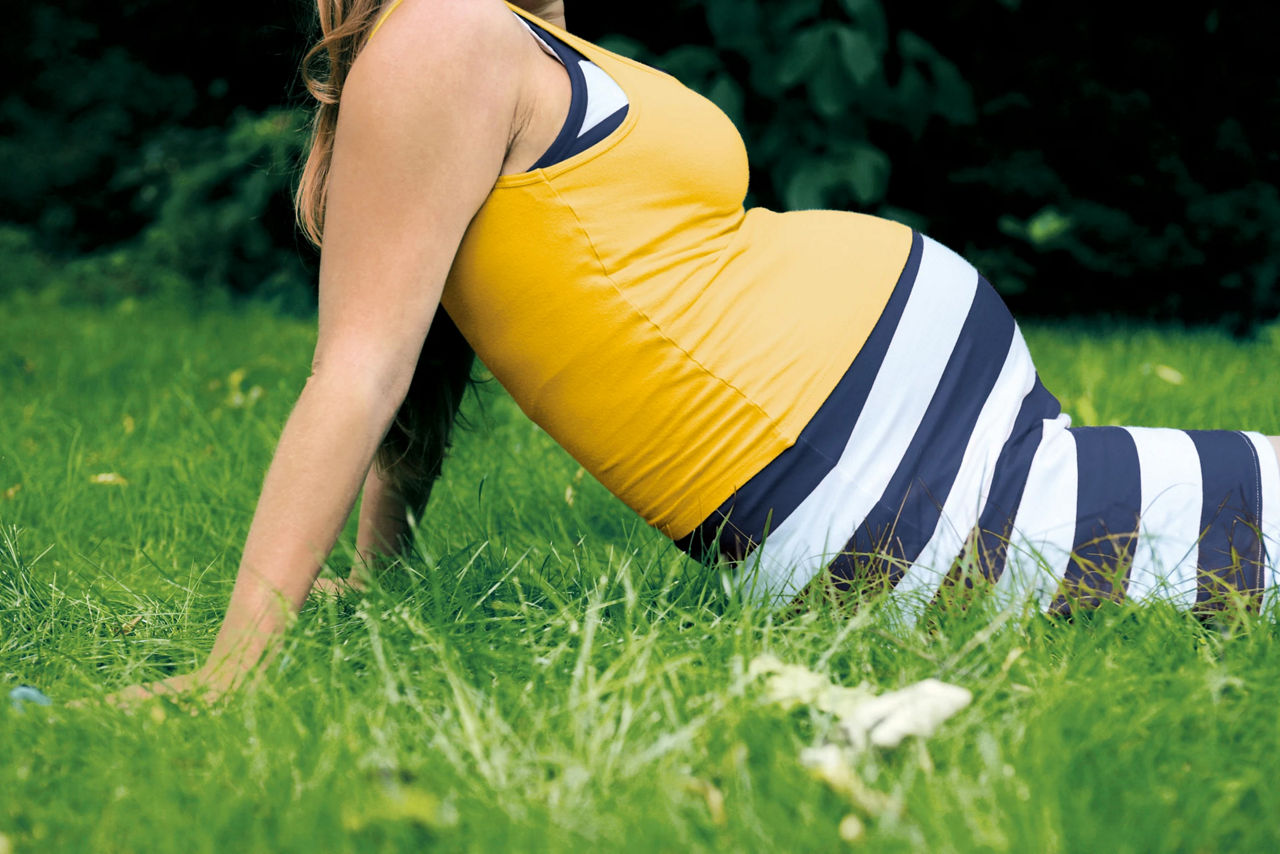Free weaning plan - Register here
Thrush - just another one of the weird and wonderful side effects that can come along with pregnancy. Thankfully, as uncomfortable as the symptoms of thrush can be, it’s easy to treat and won’t have any effect on your baby while they’re tucked away and growing safely inside your bump1.
Here you’ll find lots of information about the symptoms of thrush, why you might get thrush during pregnancy and what you can do to treat it.
Why do you get thrush during pregnancy?
Vaginal thrush is a form of yeast infection caused by a fungus called ‘Candida albicans’. The Candida fungus can live harmlessly in the vagina when kept in check by other normal bacteria, and not cause any symptoms. But being pregnant can change the balance of bacteria in the vagina, allowing the fungus to grow and lead to thrush symptoms - especially in the third trimester of your pregnancy1.
This imbalance of bacteria can also be caused by antibiotics or the contraceptive pill1.
What are the symptoms of thrush?
Not everyone has the same type of thrush symptoms, but they usually include1:
- irritation or itching around the vagina or vulva
- thick, white vaginal discharge, similar to cottage cheese. Read more about vaginal discharge in pregnancy.
- feeling sore during sex or while having a wee
- skin redness

Should I call my midwife?
Usually, you can treat vaginal thrush with an over-the-counter antifungal cream, pessary or tablet that contains ingredients like clotrimazole or fluconazole.
Some antifungal medicines, like fluconazole, aren’t safe to use while you’re pregnant, trying to get pregnant, or breastfeeding1. So before you pop down to the pharmacy, check in with your midwife who can tell you what medicines you can take to treat thrush during pregnancy. Also, check with your GP if unsure, as a pharmacist won’t normally give these medicines to pregnant women without a prescription.
Tips to ease thrush symptoms
There are a few things you can do to ease the symptoms of thrush in pregnancy and help stop it from coming back2:
- wear comfortable cotton underwear and loose clothing
- use water and emollient cream to wash your vulva instead of soap or shower gel
- make sure you dry off properly before getting dressed after a shower or bath
- avoid sex until after your thrush symptoms have gone
- don’t use douches or deodorant on your vulva or vagina
- use a clotrimazole pessary and/or clotrimazole antifungal cream to treat the yeast infection (check with your midwife first before using any treatment - remember fluconazole isn’t safe to use while you’re pregnant)
Thrush and your baby
Having thrush during pregnancy can be really uncomfortable, but the good news is that the yeast infection won’t do any harm to your baby while they’re in the womb.
Vaginal thrush can be passed to your baby during labour, so it’s best to have thrush treated during pregnancy. Don’t worry too much if you don’t catch it in time though, as thrush is easy to treat in newborns too1.
Last reviewed: October 2024
Reviewed by Nutricia’s Medical and Scientific Affairs Team
- NHS (2024). Thrush [online] Available at https://www.nhs.uk/pregnancy/related-conditions/common-symptoms/thrush/ [Accessed May 2024]
- NHS (2023). Thrush in men and women [online] Available at https://www.nhs.uk/conditions/thrush-in-men-and-women/ [Accessed May 2024]

Join our baby club
Ready to stop worrying about what other people think and do what feels right to you? We’ll give you the support you need to follow your instincts and enjoy parenthood to the max:
Helpful emails
Non-judgemental support
Free weaning plan
Tips from real parents
More from pregnancy
Pregnancy topics
Need free advice with a smile? Get in touch with our dedicated Care team.
Ask us a question (8am - 8pm Monday to Friday, 10am - 4pm Weekends)
Messenger
Contact us on Facebook (10am - 10pm, 7 days a week)
Call us
Call us on 0800 977 8880 (8am - 8pm Monday to Friday)
FAQs
Get answers to your most frequently asked questions





